from NDTV News - Special https://ift.tt/3pBNQy0
It's A Baby Boy For Kapil Sharma And Ginni Chatrath
from NDTV News - Special https://ift.tt/3pBNQy0
Myanmar Military Must Release Elected Leaders "Immediately": Australia
from NDTV News - Special https://ift.tt/3oABAfK
US Warns Of Response After Myanmar's Military Detains Officials
from NDTV News - Special https://ift.tt/39BztUN
Myanmar Military Declares 1-Year Emergency, Suu Kyi Detained: Reports
from NDTV News - Special https://ift.tt/3oHOOrm
Nirmala Sitharaman's Vaccine Today For Economy Hurt By Pandemic
from NDTV News - Special https://ift.tt/3oCsAXF
India Hands Over Mobile Harbour Cranes To Chabahar Port Authorities
from NDTV News - India-news https://ift.tt/3j2Whjr
Day Of Tough Choices For Budget Like "Never Before": 10 Points
from NDTV News - Special https://ift.tt/2NTJ8h6
Myanmar's Aung San Suu Kyi Detained, Sparks Fears Of Military Coup
from NDTV News - Special https://ift.tt/2YyKwaQ
Britain's Prince William Attacks "Despicable" Racist Abuse Of Footballers
from NDTV News - Special https://ift.tt/3j4cGE2
"Waste Turned Into Wealth": PM's Praise For Hyderabad Vegetable Market
from NDTV News - Special https://ift.tt/2MJsKyU
Live Updates: India Vaccinating Its Citizens Faster Than Others, Says PM
from NDTV News - India-news https://ift.tt/3r9Nsac
Day Of Tough Choices For Budget Like "Never Before": 10 Points
from NDTV News - India-news https://ift.tt/2NTJ8h6
Indomie — the favorite snack of an entire generation of Saudis
RIYADH: Ask any Saudi about their favorite brand of instant noodles, and the answer will more likely than not end up being “Indomie.”
Launched in Indonesia in 1972, the quick and tasty noodles made their way to the Kingdom in 1986. Popularized by Indonesian domestic workers hankering for a taste of home, their affordability and unique flavor quickly gave the noodles an almost cult-like status among Saudis and expats alike.
Indomie’s popularity in the Kingdom eventually led to the creation of three factories in Saudi Arabia to meet the product’s high demand. Indomie’s main factory in Jeddah, the largest in the MENA region, produces up to 2 million packs a day in Jeddah alone, since it opened its doors in 1992.
Hospital worker Sarah Al-Suqair told Arab News that Indomie had been an integral part of Saudi kitchens for as long as she could remember, and that preparing and eating the noodles didn’t just take place at home either.

Mie goreng, which translates to ‘fried noodle’ in Indonesian, is the most popular flavor of the Indomie instant-noodle brand.
“I remember a time when Indomie cups were the craze of the day at school, and there was a lot of swapping of Indomie cups for money, toys, trinkets, video games and movies, or even favors like doing homework,” she said. “It was the most delicious form of contraband in school, especially when the teachers caught wind of the craze and started banning them.”
Al-Suqair also recounted the wild ways in which students would prepare the instant cups at school, with little access to the boiling water necessary to create the soup.
“I remember some of my classmates getting suspended for sneaking into the chemistry lab and trying to use a Bunsen burner to boil water for the noodles. Another favorite trick was for two students to enter the teachers’ lounge, where one of them would distract the teacher with something menial while the other surreptitiously tried to sneak water from their kettle,” she said.
FASTFACT
Launched in Indonesia in 1972, the quick and tasty noodles made their way to the Kingdom in 1986.
Nutritionist Leila Bakri told Arab News that her No. 1 weakness was probably a heaping bowl of Indomie mie goreng, something she couldn’t resist no matter how unhealthy it was.
“Instant noodles in general aren’t really healthy food, due to the amount of sodium, MSG, and processed ingredients in them. But I really can’t help it. I grew up eating Indomie at home; I think we all did. It’s easy to make, it’s inexpensive, and really filling. I try to make it healthier by adding chicken, veggies, anything fresh. I even tried making my own version, but the truth is, no matter how much I try, I can never recreate the authentic Indomie flavor,” she said.

Indomie as a brand has secured its place even in the Kingdom’s pop culture sphere. The logo has found its way onto merchandise, such as T-shirts and kitchenware, pins and stickers, and even led to the creation of a short-lived mobile game, Indomie Dash, in 2013. As news of the death of Indomie mie goreng pioneer Nunuk Nuraini broke on Wednesday, people from all over the world flocked to social media to post tributes in her honor, with many fixing up a bowl of noodles and sharing photos to celebrate her life.
Mie goreng, which translates to “fried noodle,” is the most popular flavor of the Indomie instant noodle brand. However, the brand has several flavors and varieties available, from spicy fried noodles, to chicken curry, to beef broth, and even a vegetarian option.
Indofood pioneered instant noodles production in Indonesia, and is one of the largest instant noodle producers in the world. It has regional offices across the globe and Indomie is available in more than 80 countries. Indomie has also experimented with local flavors for several special packets in the countries where the brand is most popular. For example, in Nigeria, one of the largest worldwide consumers of Indomie, a Jollof flavor was released, replicating some of the flavors of the West African rice dish.
The limited availability of those flavors has led to a bizarre black market of instant noodles, with criminally overpriced packs making their way onto Ebay. A pack of five mie goreng packets averages at about SR7.45 ($ 1.9), but a box of 20 packets of Indomie Relish, a flavor released in Nigeria, will run you a whopping $70 (SR 262.5) on Ebay.
Indonesian chefs have also utilized Indomie noodles in unusual ways, such as the creation of an Indomie mie goreng ice cream by West Jakarta-based creamery, Holi Ice Cream.
And the craze hasn’t stopped at food itself. Australian gift vendor Grey Lines put out a line of “Mi Goreng Noodle Scented Candles” in 2019, inspired by the much-loved Indomie brand noodle.
However, other countries will be hard-pressed to match the Kingdom’s love for the noodle.
In an interview with Katadata, a business news site, Indofood CEO Franciscus Welirang said Indomie consumers in Saudi Arabia are now in their second generation. Indomie also dominates 95 percent of the instant noodle market in the Kingdom, despite quite a few contenders, according to the Indonesian Consulate General in Jeddah.
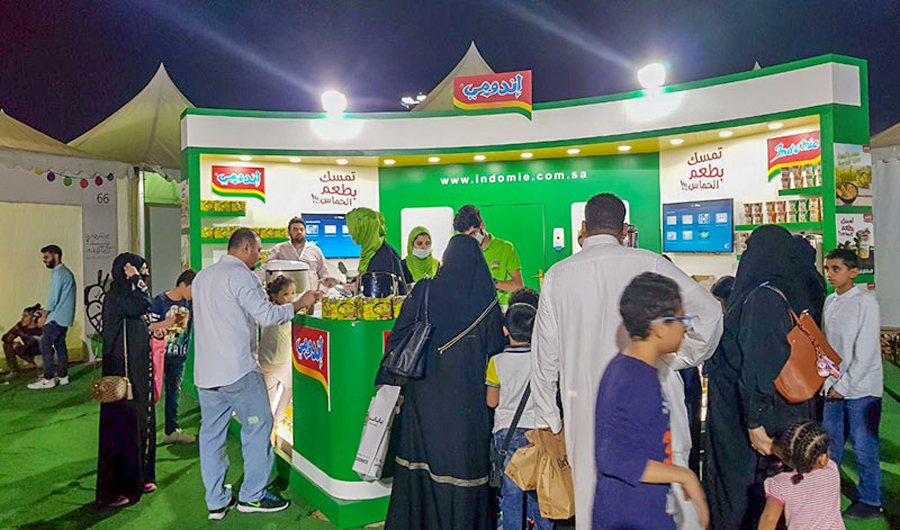

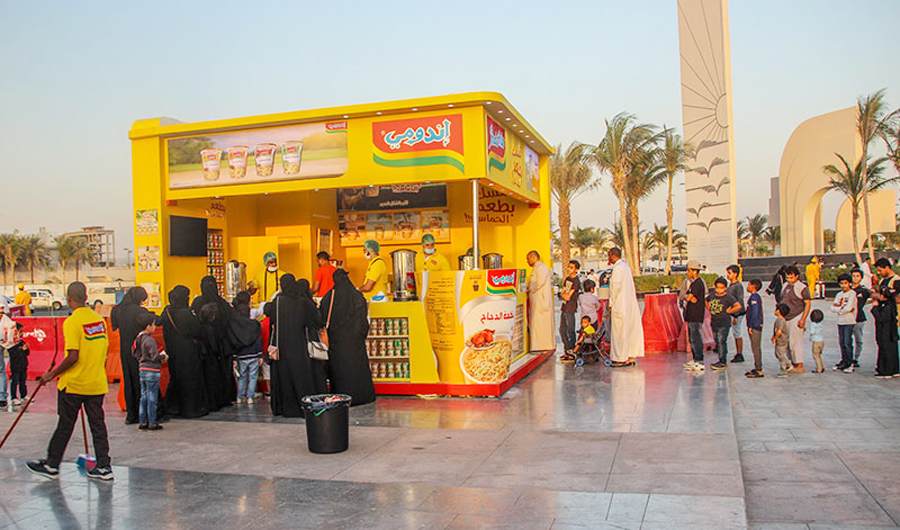
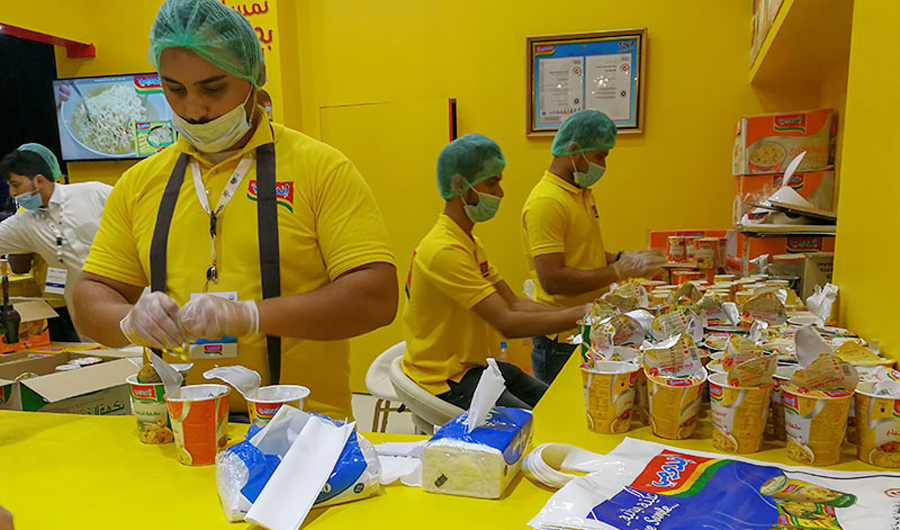
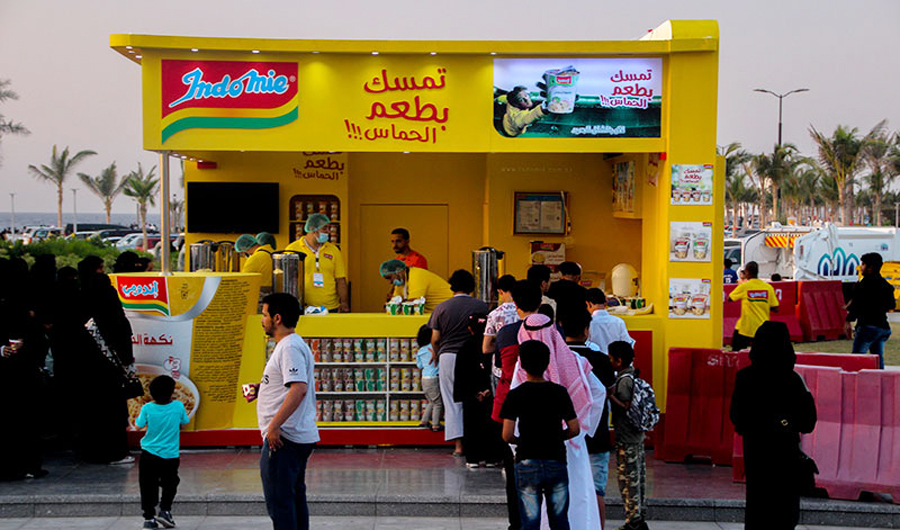
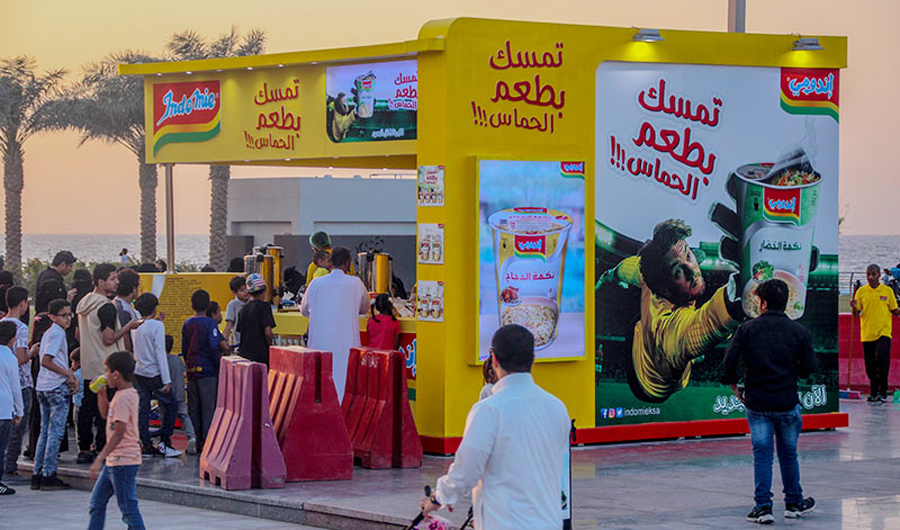
from Saudi Arabia https://ift.tt/2NSSNEF
Saudi Arabia’s Farasan Islands, the place to beat the winter blues
JEDDAH: With most of Saudi Arabia’s residents reeling from the cold, the Kingdom’s southwestern islands are basking in the warm sun, enticing many to head south.
The small archipelago, made up of 84 coral islands, are approximately 40 km off the coast of Jazan in the Red Sea and is considered one of the Kingdom’s most pristine areas.
It was chosen as one of the Saudi Tourism Authority’s (STA) 17 Saudi Winter Season destinations.
From mangroves to white sandy beaches, the islands are an ideal spot for bird watchers looking to get a peak at over 165 migrating birds.
Divers make their way around the bright colored corals and wanderers look for glimpses of history hidden in the villages’ old stone buildings that dot the islands, including the remains of an ancient Ottoman castle overlooking the coastline.
The bright turquoise waters are also home to dolphins, over 200 types of fish and if lucky, visitors can catch a glimpse of the dugongs that are native to the area.
HIGHLIGHT
The small archipelago, made up of 84 coral islands, are approximately 40 km off the coast of Jazan in the Red Sea and is considered one of the Kingdom’s most pristine areas.
The weather is at its prime during the winter months. With a lower chance of rainfall and an abundance of sunshine, the temperature is perfect for a short trip over the weekend.
The STA has provided a wide variety of touristic activities within the Saudi Winter Season for citizens, residents and visitors of GCC countries, to create long-lasting memories and unforgettable family experiences especially during the wake of the coronavirus disease (COVID-19) pandemic.
In its effort to promote local tourism, the season, which will run until the end of March, provides visitors with more than 300 experiences and packages by over 200 tour operators and tourism companies.
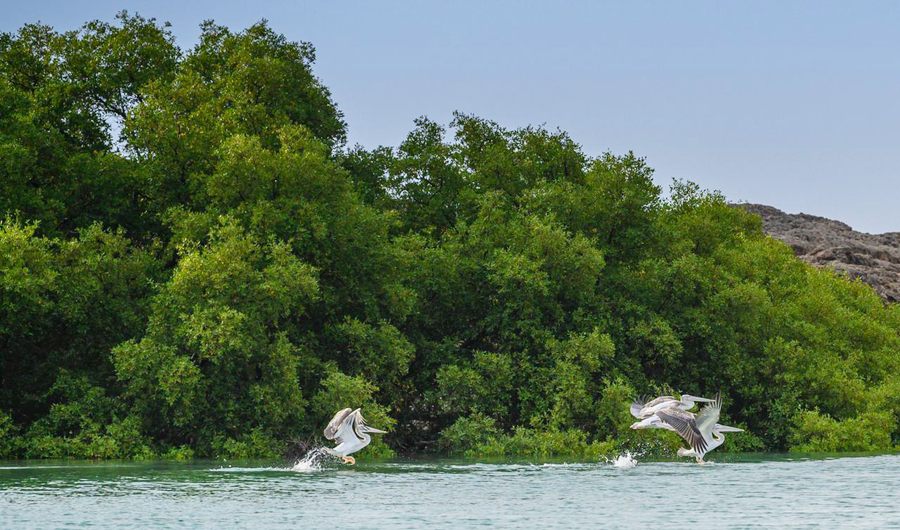
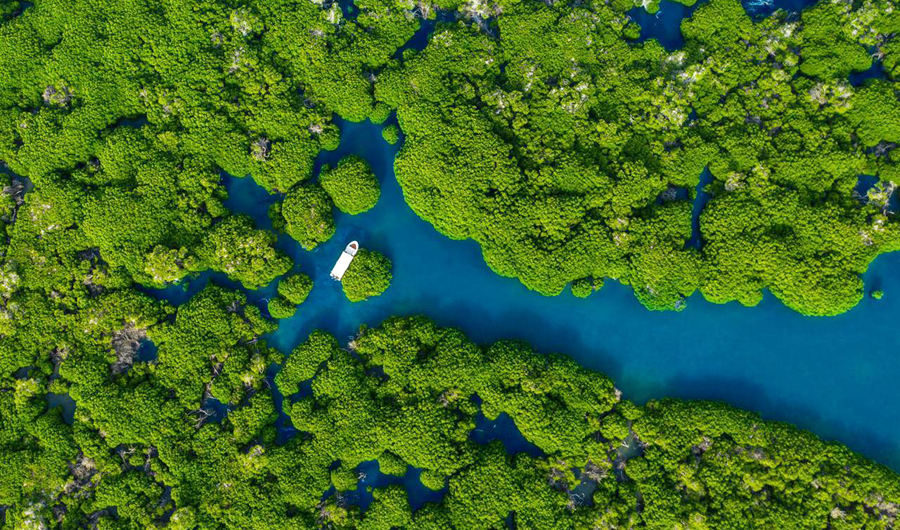
from Saudi Arabia https://ift.tt/3rlMA2D
Saudi Arabia’s Mount Tuwaiq lights up with Arabic calligraphy
RIYADH: The Ministry of Culture has implemented a digital visual display on the sides of the summit of Mount Tuwaiq, west of Riyadh, bearing the logo of the “Year of Arabic Calligraphy” initiative.
This is to enhance the initiative’s profile, through which the Ministry of Culture has worked to transform Arabic calligraphy from a cultural vessel into an icon representing an important element in the cultural identity of the Kingdom, as it is the fundamental historical source of Arab culture.
The ministry organized the display at the summit of Mount Tuwaiq in cooperation with Qiddiya Investment Co. for the inauguration of the “Year of Arabic Calligraphy” initiative for 2021.
This included displaying three other logos next to the initiative’s logo — that of the Kingdom’s Vision 2030, that of the Ministry of Culture which launched the initiative, and that of the Quality of Life Program, part of the programs to help achieve the Kingdom’s Vision 2030.
The lighting of Mount Tuwaiq is in line with the Ministry of Culture’s efforts to promote the “Year of Arabic Calligraphy” initiative. This was launched by the ministry to celebrate the art of Arabic calligraphy, its cultural connotations, and to spread its use as the Kingdom is its keeper, patron and a main supporter.
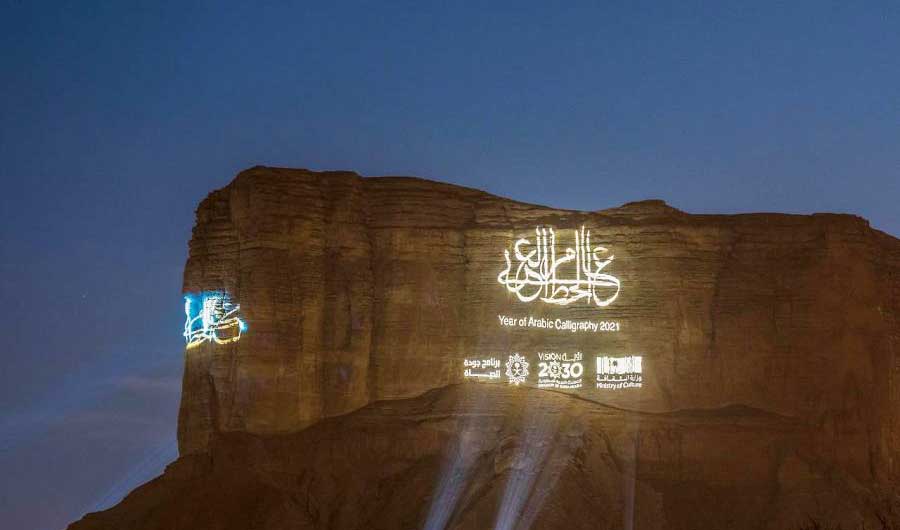
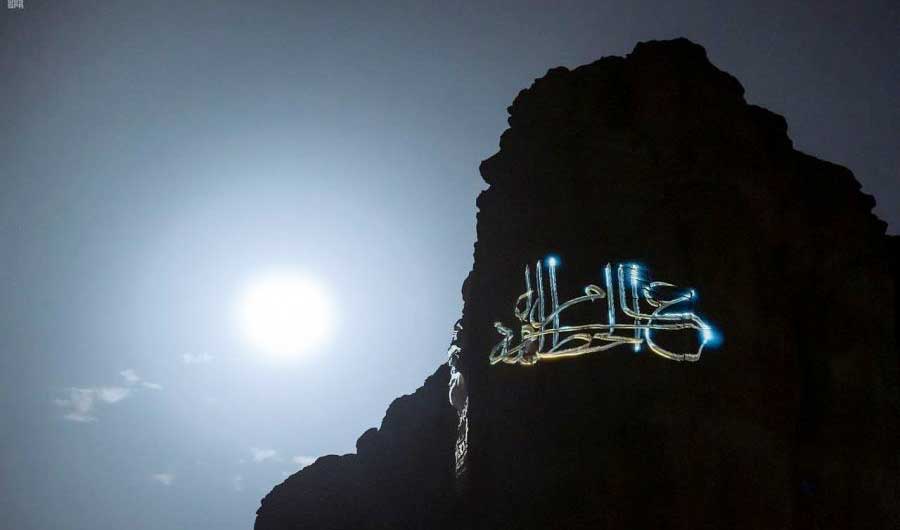
from Saudi Arabia https://ift.tt/3t7kx8y
Saudi Arabia launches joint defense exercises
DHAHRAN: The Spears of Victory military drills, known as Rumah Al-Nasr, were launched on Sunday at the Air Warfare Center at King Abdul Aziz Air Base in the Eastern Province.
It is the first exercise to be held in the Air Warfare Center since its inauguration by Crown Prince Mohammed bin Salman in 2019.
The exercise will raise the level of combat readiness in all air, technical and support crews by applying cutting-edge skills, tactics and procedures in a real work environment.
Those taking part will be able to plan and implement joint military operations with branches of the armed forces in a harmonious and integrated manner at the operational and tactical levels.
Systems and scenarios that simulate real warfare environments will be used in the exercises.
It will run until Feb. 12 and will include the Royal Saudi Land Forces, the Royal Saudi Navy and the Royal Saudi Air Defense Forces.
The Air Warfare Center contributes to the development and modernization of combat plans against potential threats, the evaluation of air force capabilities, and the testing of military hardware.
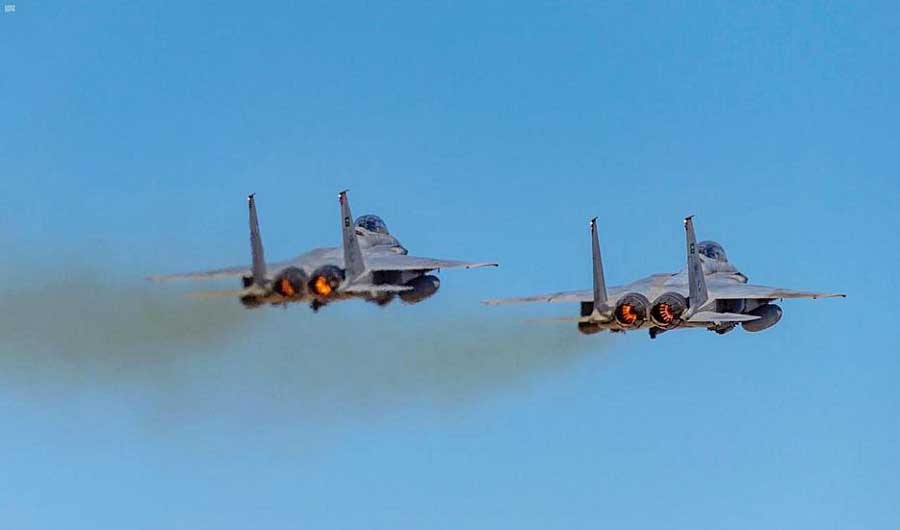
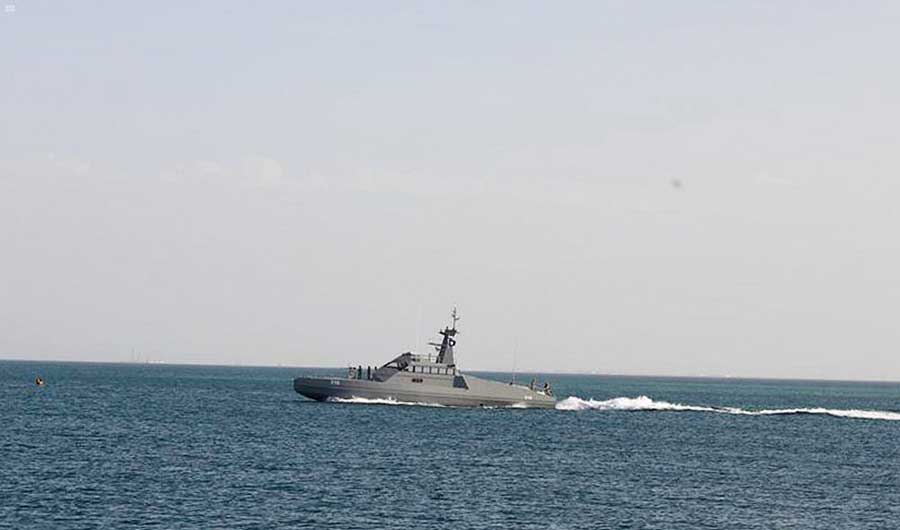
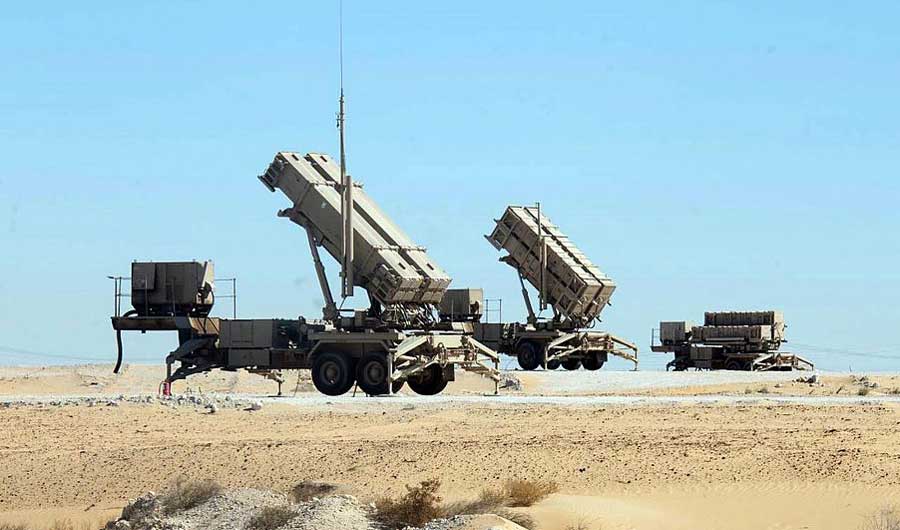
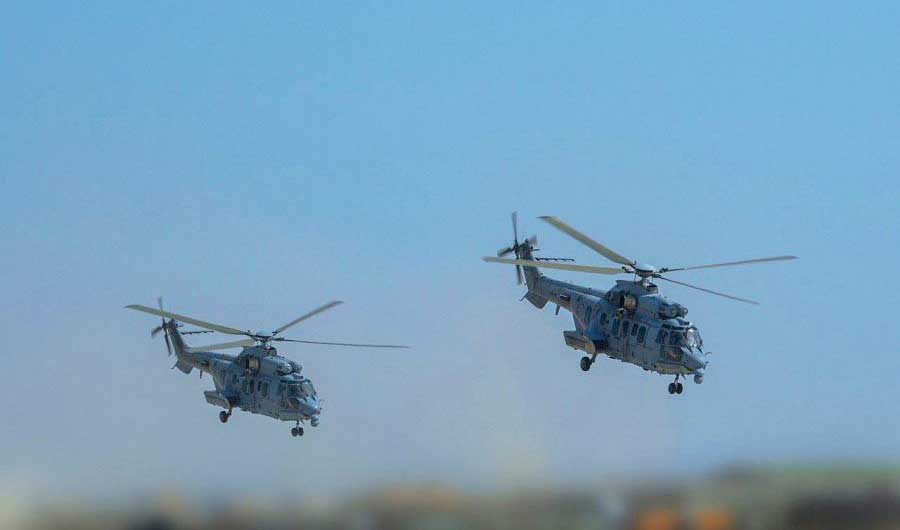
from Saudi Arabia https://ift.tt/3r8GmCR
11,000 vehicles seized over Jeddah traffic violations
JEDDAH: Violations included random parking in residential neighborhoods, tankers pumping water, and waste disposal in unauthorized locations, according to the undersecretary for sub-municipalities, Mohammed Al-Mutairi.
He said that the Department of Monitoring Transport Vehicles of the Sub-Municipalities, in coordination with relevant authorities, carried out field trips to implement regulations and combat negative practices in the city’s neighborhoods.
These field trips resulted in the seizure of 10,892 vehicles that had breached regulations. Legal procedures were carried out against them in line with fines and penalties for municipal violations.
The seizures are part of the municipality’s efforts to combat and prevent visual pollution and improve the urban landscape.
Al-Mutairi added that the municipality would continue to monitor vehicles and implement regulatory procedures in order to prevent negative practices within neighborhoods.
He thanked residents for their cooperation in eliminating municipal violations by reporting them through the Reports and Complaints System 940 or through the Balady smartphone app.
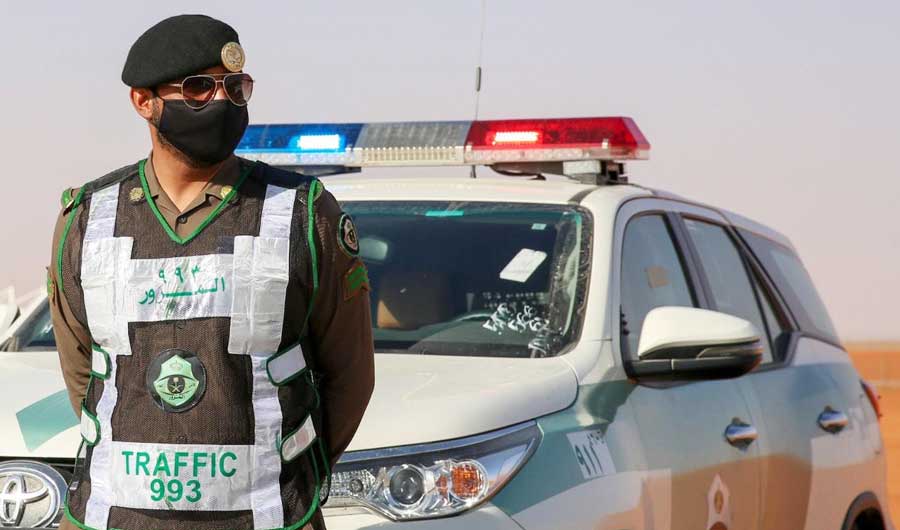
from Saudi Arabia https://ift.tt/3te0s0s
Najran governor launches $16 million health projects
NAJRAN: Najran Gov. Prince Jalawi bin Abdul Aziz bin Musaed has inaugurated the region’s 100-day health projects in the presence of the minister of health, Dr. Tawfiq Al-Rabiah, at the Prince Mishaal bin Abdullah Conference and Events Center.
Al-Rabiah said that the projects, costing more than SR60 million ($16 million), included the establishment and development of primary healthcare centers and the restoration and equipping of hospital units in the region.
He said that the program came within Vision 2030, which aims to raise the efficiency of spending on health services and improve the health sector and its services.
Prince Jalawi praised the efforts of the Saudi government in the health, treatment and preventive services, which he said had contributed to preserving the security and stability of the country and the safety of citizens and residents.
Prince Jalawi and Al-Rabiah also witnessed the signing of community partnership agreements between the Health Ministry, the literary club, and the specialist hospital in Najran.
They also honored the work of health sector workers, community members and the private sector for their efforts during the pandemic.
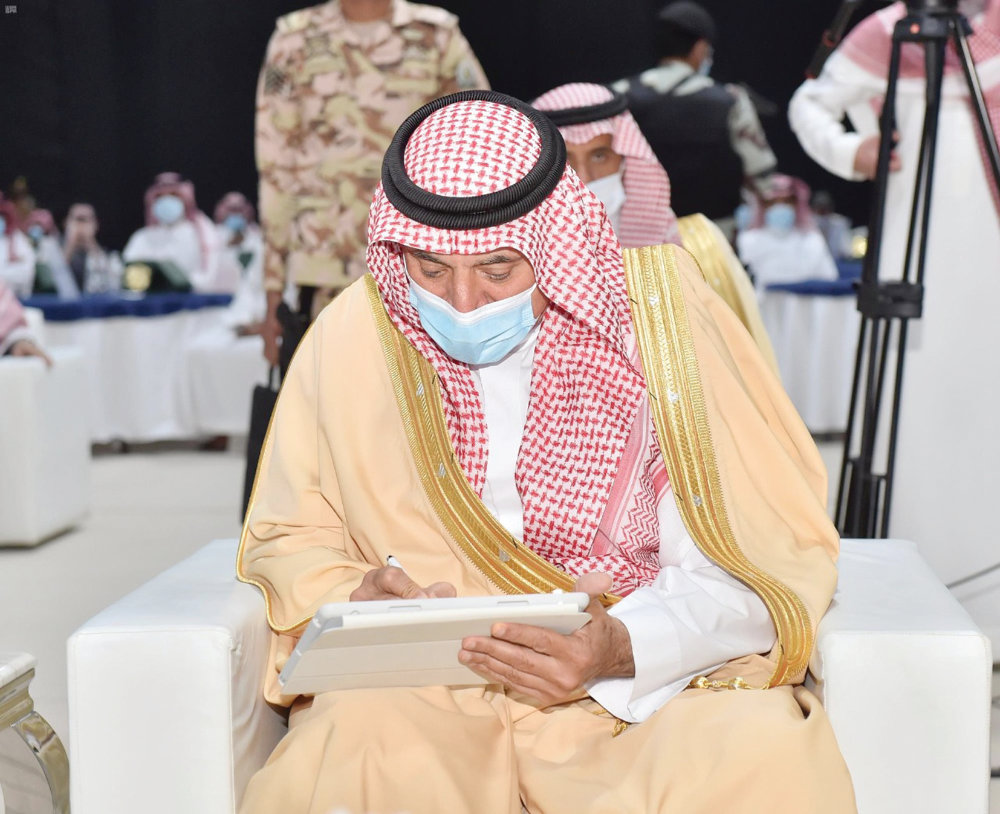
from Saudi Arabia https://ift.tt/3r9eTB7
MoU signed to launch AI center for energy in Saudi Arabia
RIYADH: A new AI center for energy has been inaugurated with the signing of an MoU between the Saudi Ministry of Energy and the Saudi Data and Artificial Intelligence Authority (SDAIA).
This will boost the Kingdom’s efforts in improving its ranks in leading international data and AI indicators.
The MoU signed by Saudi Minister of Energy Prince Abdul Aziz bin Salman and the head of the SDAIA, Dr. Abdullah bin Sharaf Al-Ghamdi, is also aimed at contributing to the development of national cadres’ capabilities and the Kingdom’s AI methodologies.
The MoU comes within the scope of supporting government integration between the ministry and SDAIA to achieve their common goals in supporting, developing, reviewing and implementing data and AI strategies in the energy and gas sectors.
The inauguration of the Artificial Intelligence Center for Energy will help to promote AI research and development efforts, support innovation and enable entrepreneurship.
The center will focus on four strategic objectives: Promoting national energy priorities, developing AI to benefit knowledge, accumulating experiences in the field of energy, and leading the AI aspect of the Kingdom’s energy-related strategic partnerships.
“By 2024, 70 percent of the institutions will be using the AI-based infrastructure and smart cloud services, greatly easing the concerns regarding the institutions’ integration and expansion. In addition, more than 50 percent of the institutions will be resorting to AI services to expand their application portfolios by 2023,” Prince Abdul Aziz said.
HIGHLIGHT
The center will focus on four strategic objectives: Promoting national energy priorities, developing AI to benefit knowledge, accumulating experiences in the field of energy, and leading the AI aspect of the Kingdom’s energy-related strategic partnerships.
The center will promote the energy sector’s competitiveness, especially in joint innovation. It is also expected to contribute to building national AI capabilities and competencies in the energy sector, which is among the priority sectors of SDAIA’s National Strategy for Data and Artificial Intelligence (NSDAI).
This will support the objectives of reaching more than 15,000 data and AI specialists by 2030 and boosting cooperation with the largest national and international companies in the fields of energy and AI to localize the technology and stimulate AI-related investments. NSDAI seeks to reach SR75 billion ($19.996 billion) in local and foreign investments in data and AI by 2030.
The center will be jointly managed by the Energy Ministry and SDAIA, with the participation of the national energy system’s main stakeholders.
“The energy system believes in the importance of integration and working as a joint government team with the various relevant bodies, taking into consideration each body’s responsibility and nature of work,” Prince Abdul Aziz said. He stressed the significance of the relationship between the energy and data and AI sectors in the Kingdom, “as the energy sector constitutes 40 percent of the Kingdom’s GDP with more than 270,000 employees. Data in the energy sector are considered a great asset and represent a golden opportunity to enhance the Kingdom’s position in terms of adopting AI in the energy sector.”
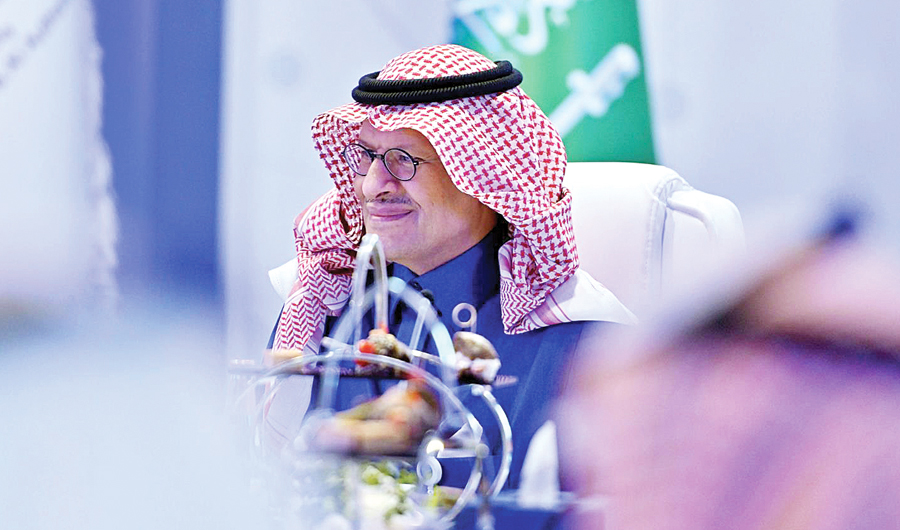
from Saudi Arabia https://ift.tt/3j63YW3
KSrelief chief, French envoy discuss humanitarian ties
RIYADH: Dr. Abdullah Al-Rabeeah, general supervisor of the King Salman Humanitarian Aid and Relief Center (KSrelief), met the French ambassador to the Kingdom, Ludovic Pouille, in Riyadh on Sunday.
The pair discussed cooperation between KSrelief and France to provide humanitarian and relief aid to impoverished countries, especially in Africa, in addition to ways to combat the coronavirus pandemic.
They also discussed Saudi Arabia’s role in G20 meetings and its support for international organizations, countries with fragile health systems and French health humanitarian initiatives.
The ambassador praised KSrelief’s excellence and services to people around the world, adding that the center is a “milestone” in the field of humanitarian work.
Meanwhile, KSrelief has continued distributing winter clothes to refugees and needy families in Jordan.
FASTFACT
$4.9bn KSrelief has implemented 1,475 projects worth nearly $4.9 billion in 59 countries.
It recently distributed 5,427 winter bags and 10,854 blankets, benefiting 27,135 people in a number of Jordan’s governorates.
The distribution comes within the framework of humanitarian efforts from Saudi Arabia, represented by KSrelief, to support Palestinian and Syrian refugees as well as needy families in Jordan.
In Sudan, KSrelief finished its medical campaign in Al-Kalakla to combat blindness and the diseases that cause it.
The volunteer medical team examined 836 cases, carried out 400 surgeries, provided 2,580 medicines and distributed 557 glasses.
The campaign is an extension of the humanitarian and relief efforts from the Kingdom, which seeks to treat people with eye diseases and provide them with the necessary medical care in a number of countries.
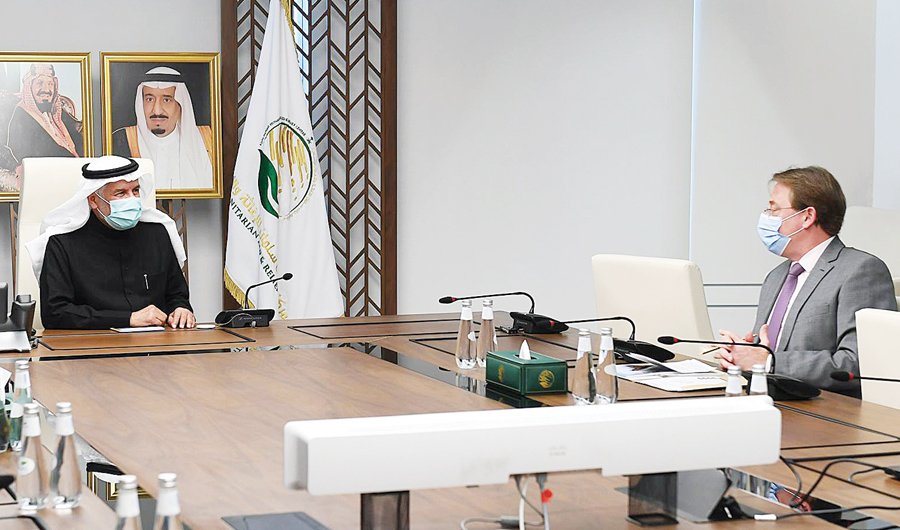
from Saudi Arabia https://ift.tt/3pxe9VY
Dr. Nouf Abdul Aziz Al-Anazi, director of King Fahd Cardiac Center
Dr. Nouf Abdul Aziz Al-Anazi was recently appointed as director of the King Fahd Cardiac Center (KFCC) at the King Saud University Medical City (KSUMC) of the King Saud University (KSU).
Al-Anazi, who is considered to be one of the distinguished national cardiologists and the first Saudi female doctor to head a heart disease center, has held several high-profile positions, including head of the quality unit at the KFCC and director of the interventional cardiology program at KSUMC. She is also an assistant professor and consultant of interventional cardiology.
Al-Anazi, who was born in 1981, completed her school education with distinction in 2000. In 2007, Al-Anazi graduated from the KSU’s College of Medicine with a bachelor’s degree in medicine and surgery.
Five years later, she obtained internal medicine board certificate from the Saudi Commission for Health Specialties. She then undertook a cardiology residency and interventional cardiology fellowship at the University of Calgary, Alberta, Canada.
Al-Anazi also received cardiology board certification from the Royal College of Physicians and Surgeons of Canada.
In an August 2020 interview with Al-Ekhbariya channel, Al-Anazi said that patients with heart problems had become afraid of attending emergency departments in hospitals, fearing they could become infected with the coronavirus.
She said that although their fears were justified, anyone experiencing heart attack symptoms should take all medical precaution measures and head immediately to the nearest ER, as “early intervention is vital in helping a heart patient.”
Al-Anazi has attended many specialized courses and medical seminars and conferences, and has published numerous scientific papers.
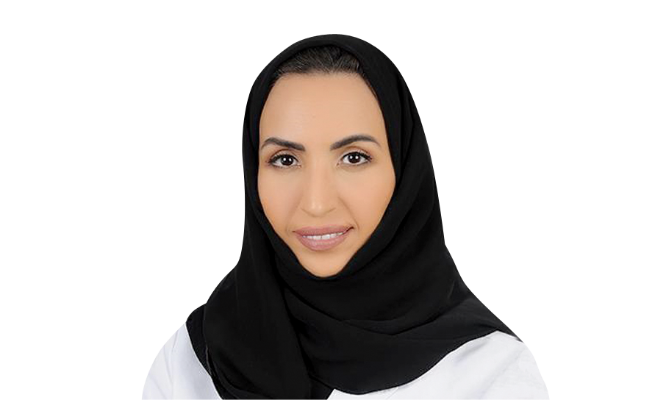
from Saudi Arabia https://ift.tt/3j2FZqG
Failed To Retain Glory Of Visva Bharati, Says Vice Chancellor
from NDTV News - Special https://ift.tt/36tNO3E
Germany Threatens Legal Action Over Vaccine Delays
from NDTV News - Special https://ift.tt/3tb2qyt
Katrina Kaif Redefines "Chill Saturday Nights" In Her New Video
from NDTV News - Special https://ift.tt/3tdnV1S
Water Baby Sunny Leone Shares Another Pic From Her Kerala Diaries
from NDTV News - Special https://ift.tt/3tbeKyJ
BJP Worker Shot Dead In Tripura, 3 Arrested: Police
from NDTV News - Special https://ift.tt/2MD7pav
How MacKenzie Scott Shook Up Philanthropic World By Donating Billions
from NDTV News - Special https://ift.tt/3pvh5lY
2021 Indian FTR Range Gets Updated With New Features, Smaller Tyres
from NDTV News - Special https://ift.tt/3j3uQ9h
BJP Worker Shot Dead In Tripura, 3 Arrested: Police
from NDTV News - India-news https://ift.tt/2MD7pav
Opinion: Economic Survey Proves Farmers' Concerns Are Right
from NDTV News - Special https://ift.tt/2YsY5bM
Kremlin Critic's Allies Plan Fresh Protests Despite Crackdown
from NDTV News - Special https://ift.tt/3ozbD0a
Germany Threatens Legal Action Over Vaccine Delays
from NDTV News - Special https://ift.tt/3tb2qyt
Britain Opens Visa Scheme For Millions From Hong Kong
from NDTV News - Special https://ift.tt/2YxUxoE
PM Modi To Address 2021's First 'Mann Ki Baat' Today
from NDTV News - India-news https://ift.tt/3r6vuWi
Maharashtra Railway Cops Save Life Of Man Trying To Board Moving Train
from NDTV News - India-news https://ift.tt/3cogRt5
Hundreds Of Birds Culled In Kathmandu To Stop Spread Of Bird Flu
from NDTV News - Special https://ift.tt/2YwafAY
Live Updates: Serum Institute Hopes To Launch Covovax Vaccine By June
from NDTV News - India-news https://ift.tt/3cs1Jv4
President Ram Nath Kovind Launches Pulse Polio Programme For 2021
from NDTV News - India-news https://ift.tt/3cpW4Fv
Saudi General Authority for Statistics launches survey to monitor tourism growth
RIYADH: Saudi Arabia’s General Authority for Statistics (GASTAT) has launched the Tourism Establishments Survey, a comprehensive annual economic survey that covers the Kingdom’s tourism sector.
The survey aims to provide data and calculate tourism’s contribution to Saudi gross domestic product. It will also gather data to help determine indicators behind the growth rate of each tourism activity, and the information of workers by sex and nationality.
It will also find the amount of compensation paid to employees, expenditures, revenues, expenditures, rates of operation and performance, and the rate of participation of foreign partners in capital ownership across the tourism industry.
The survey looks to provide agencies, government departments and the private sector with important data and statistical information on tourism.
Data will also be used in local, regional and international comparison studies, as well as to determine the rate of official and temporary jobs that the tourism sector contains.
GASTAT said that the survey will be conducted by phone, while data can be sent through email and database records found at the relevant government agencies.
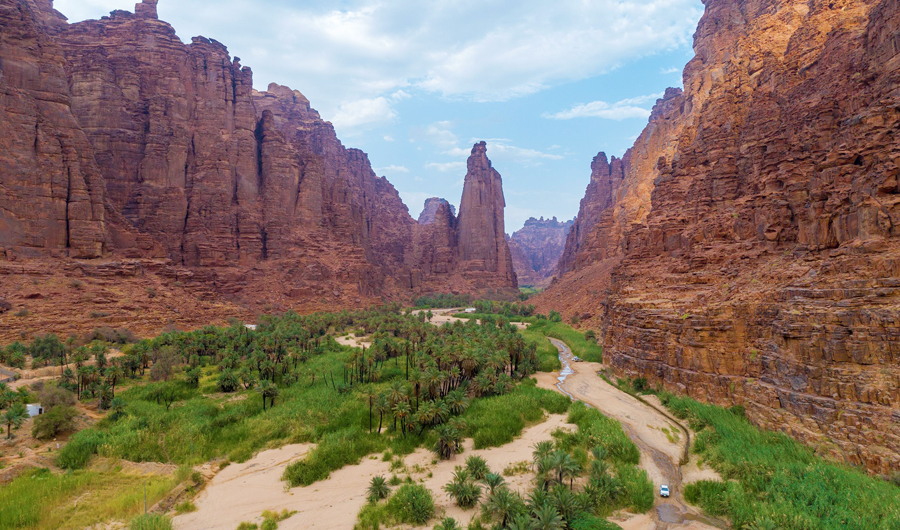
from Saudi Arabia https://ift.tt/3j08aXr
Saudi, German doctors find new way to measure biomarkers
RIYADH: Researchers in the field of laser physics in the Attosecond Sciences Laboratory of the College of Science at King Saud University (KSU) are working on the research project Lasers4Life (L4L) to find a new way to measure biomarkers using innovative femtosecond laser technologies.
The joint research was conducted in cooperation with the Ludwig Maximilian University and Max-Planck-Institute for Quantum Optics in Germany. It was carried out under the leadership of Professor Lawrence Krauss and his team, in cooperation with oncology professors Dr. Khaled Al-Saleh and Jean-Marc Nabholtz of the Oncology Center at the King Saud University Medical City.
Dr. Abdullah bin Mohammed Al-Zeer, member of the research team, said: “The L4L project will influence the future of detecting cancer and other diseases as well as discovering new indicators. An extensive clinical trial is currently underway to test this technology in many medical centers in the Kingdom and around the world.”
Al-Zeer added that the project aims to investigate the feasibility of advanced high-speed laser technologies along with spectroscopy in creating new effective methods to detect and monitor cancer and tumors at an early stage using artificial intelligence statistics (in cooperation with the King Abdullah University of Science and Technology).
The idea for the project came to a team of physicists from the Oncology Center at KSU and Max-Planck-Institute for Quantum Optics in 2013. They sought to study the possibility of applying an attosecond laser (one-billionth of one-billionth of a second) to detect cancerous tumors at an early stage.
“If cancer is detected at an early stage, it can be controlled,” Al-Zeer said. “Therefore, a new method was found by drawing blood from the patient and tracking the movement of particles inside the blood to know whether the patient is likely to be affected by cancer.”
The preliminary results of the research program for molecular fingerprinting to substantiate the principle using the quantitative optics technology applied in the detection of breast cancer were published in the Janaury 2020 issue of Nature magazine. The principle was also presented during the ESMO World Congress in Barcelona, Spain and published in the Annals of Oncology journal.
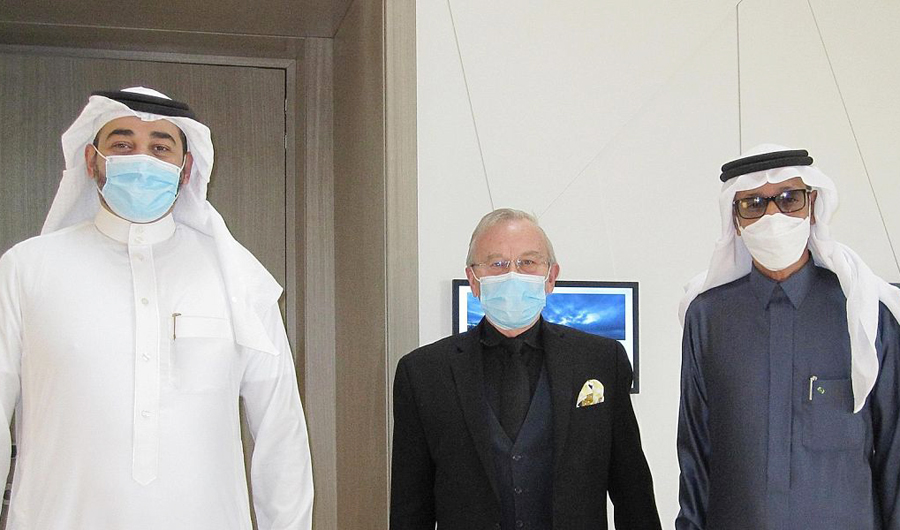
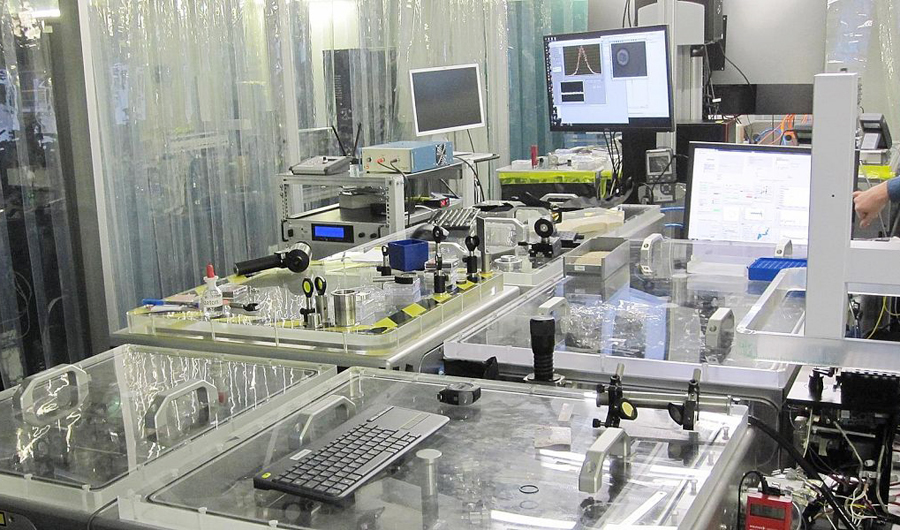
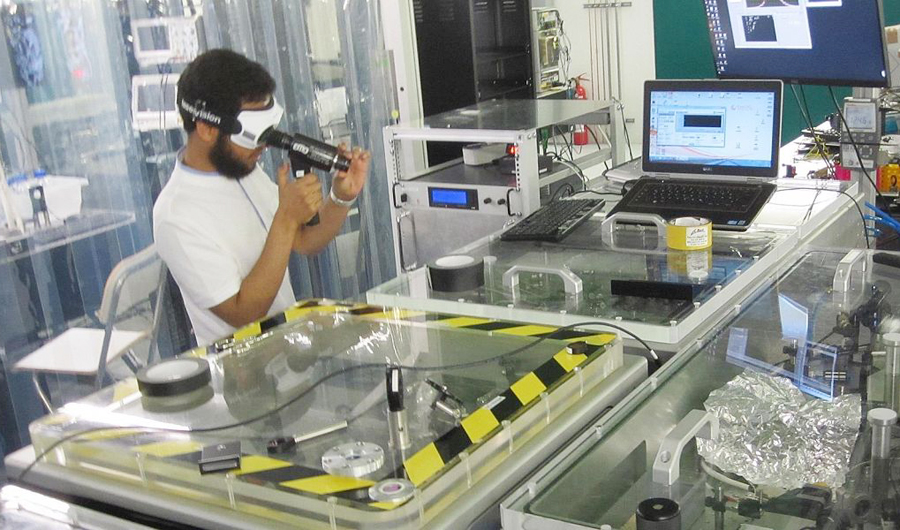
from Saudi Arabia https://ift.tt/3owwYHp
Saudi Arabia sees ‘concerning’ rise in COVID-19 cases
JEDDAH: A concerning rise in daily coronavirus cases in Saudi Arabia has been blamed on failures to follow health protocols at growing numbers of social gatherings.
The Kingdom’s daily coronavirus tally has climbed above the 200 mark in recent weeks, with Riyadh leading in case numbers among the regions.
A total of 270 new cases were reported on Saturday by the Ministry of Health, raising the overall figure to 367,813 since the pandemic began in March last year.
For months, the number of active cases declined significantly while daily recoveries exceeded new cases. But following a number of violations in past weeks, active cases have fluctuated between 1,900 and 2,200 as authorities across the Kingdom’s regions warn against social gatherings and ignorance of health and safety protocols.
There are now 2,142 active cases, 352 of which are in critical care.
Across the regions, Riyadh recorded 105 new cases, the Eastern Province 66, Makkah 40 and Madinah 16. The other regions recorded fewer than 10 cases each, with Jazan recording only a single case on Saturday.
About 300 new recoveries were reported on Saturday, raising the total number to 359,299. The recovery rate is holding steady at 97.6 percent.
According to the Ministry of Health’s COVID-19 dashboard, Riyadh is leading in recovery numbers nationwide with more than 60,000, followed by Makkah with 34,259, Jeddah in close third with 33,968 and Madinah with 22,530.
FASTFACTS
367,813 Total cases
359,299 Recoveries
6,372 Deaths
Other cities have reported fewer than 20,000 recoveries. Saturday saw four new COVID-19-related deaths, raising the Kingdom’s death toll to 6,372.
About 12.2 million PCR tests have been conducted over the course of the pandemic, with more than 36,000 completed in the past 24 hours.
Though the Kingdom will remain under flight lockdown until May 17, exceptions are being made for citizens in designated categories to travel abroad.
The General Directorate of Passports said on Twitter that citizens are only provided one permit to a requested destination, adding that changing destinations is forbidden and citizens must travel within 30 days of being issued a travel permit.
Meanwhile, the Ministry of Health has continued to warn residents to follow advice and heed announcements from authorities. The ministry is fact-checking claims and rumors being circulated on social media regarding the Kingdom’s COVID-19 case count.
“We trust in beneficiary awareness, and we are keen to receive information and all publications from official sources,” the body said.
“There is an official account of the Ministry of Health on the Twitter platform, in which reliable and confirmed information is provided to all. Please refer back to the account and do not rely on anonymous sources.”
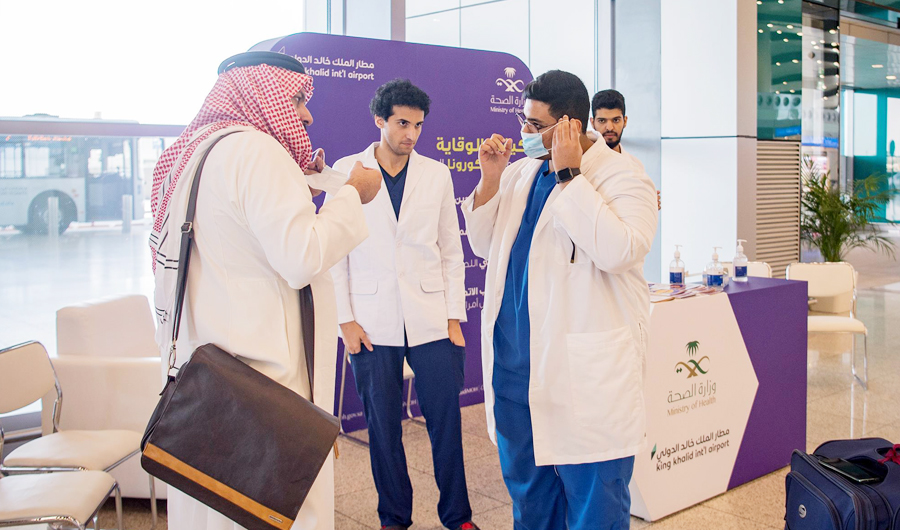
from Saudi Arabia https://ift.tt/2NS7KXB
Saudi Arabia’s Jabal Al-Lawz blanketed in snow
JEDDAH: Residents of the Kingdom are enjoying a rare snowy escape this Saudi Winter Season.
One of the season’s destinations is Jabal Al-Lawz, Almond Mountain, which takes its name from the large number of almond trees growing on its slopes. Located in the northwest of the Kingdom and rising to more than 2,600 meters above sea level, Jabal Al-Lawz is blanketed in snow every winter and this year, the Saudi Tourism Authority (STA) has chosen the area as one of its 17 destinations.
The snowfall on the granite terrain of Jabal Al-Lawz makes the mountain a perfect winter destination, especially for adventure lovers. For those who haven’t experienced snow before, this winter season is a great opportunity to head up north.
HIGHLIGHT
The Saudi Tourism Authority (STA) has provided a wide variety of touristic activities within the Saudi Winter Season, for citizens, residents and visitors of GCC countries, to create long-lasting memories and unforgettable family experiences.
The mountain offers fun activities such as skiing, snow boarding and tubing — and who can resist a snowball fight? The areas are also great for camping on the snow-covered soft sands.
The gentle snow-covered tracks and starlit sky is nature’s way of inviting residents of Tabuk and visitors from across the Kingdom to enjoy the magic of the Saudi winter season.
The Saudi Tourism Authority (STA) has provided a wide variety of touristic activities within the Saudi Winter Season, for citizens, residents and visitors of GCC countries, to create long-lasting memories and unforgettable family experiences.
During the season, which will run until the end of March, visitors will be able to choose from more than 300 experiences and packages by more than 200 tour operators and tourism companies, to discover the Kingdom’s geographical and climate diversity.
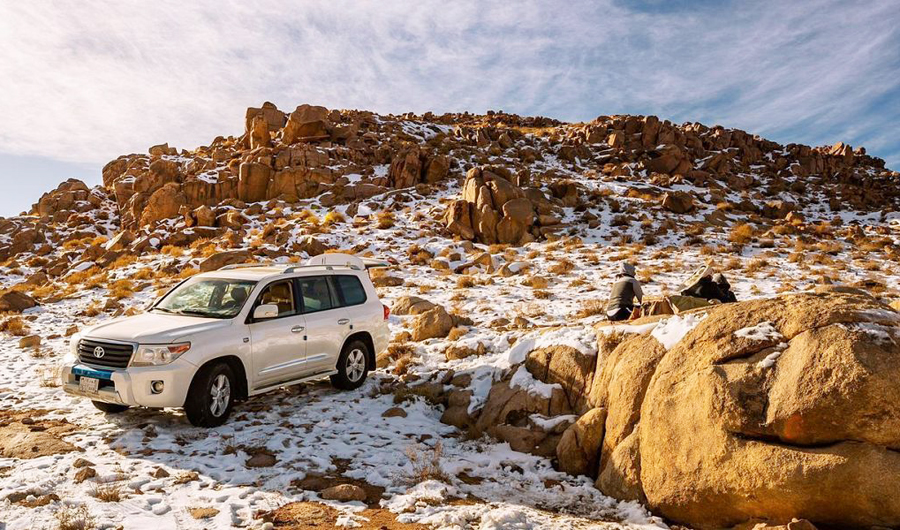

from Saudi Arabia https://ift.tt/36s0NTm
Lego taps 9-year-old Saudi fan to dream up new creations
DUBAI: A year after Lego Group opened their first store in Saudi Arabia, the toymaker has decided to expand its presence in the Kingdom by opening up a store in Riyadh on Jan.
30 — and they’ve tapped a 9-year-old super fan to dream up Lego creations for the shop.
In a video interview with Arab News Wesam Banabilah’s mother, Mirvat Farrash, said that his love for Lego started at a very young age.
“Lego has been in our life since he was three,” Farrash said. “His teacher told me that Wesam always goes to the building corner. He spends most of his time there. Then we went to Turkey and that was the first time we saw a Lego store.”
Banabilah, who was sitting against a backdrop of Lego creations, said: “First, I thought it was only a toy store,” before his mother added that he got his first Lego set from there. “It was a brick box for engineering,” said the young boy.
He has built about 15 models for the new shop — on average, it takes him around an hour and a half to create his complex Disney characters, architectural structures and robotic creatures. He starts off his creations by following the guides that come with the sets, but then dismantles them and lets his imagination take over.
The young talent has developed quite a fan base through Instagram — managed by his mother.
“We are getting requests on Instagram from people asking if Wesam can help build models. Wesam, his dad and I thought of offering instalment services. So anyone who needs help with building a set, Wesam can help them,” said Farrash.
The Lego-lover’s parents have worked on business cards for Banabilah, who is interested in giving lessons and workshops to other children.
“Everyday he tells me: ‘Mom, please take me to the store. I will give advice to people on what to buy,’” she said.
As we bring the play experience to more Lego fans, we want to also establish a strong connection with the local culture.
Urszula Bieganska, head of marketing at Lego Middle East
Banabilah said he is excited to be at the store, but a little shy to meet everyone there.
The family, who lives in Riyadh, are thrilled to have the store open locally.
Before that they either ordered sets online from the US or traveled to Jeddah or Dubai to buy Banabilah his blocks.
The head of marketing at Lego Middle East, Urszula Bieganska, said: “We’re thrilled to have the opportunity to reach more families from across the region. As we bring the play experience to more Lego fans, we want to also establish a strong connection with the local culture.”
Bieganska also said that the group will introduce the first and only Lego Mosaic Maker in the Middle East.

‘Lego has been in our life since he was three,’ says Banabilah’s mother.
“Anyone who has ever wondered what their face would look like made out of Lego bricks can have their picture taken and purchase their very own personalized mosaic portrait to take home as a keepsake,” she explained.
According to Bieganska, the Kingdom’s market is “future-focused.” “In Saudi Arabia, innovation is seen as key to the country’s social growth and prosperity.
In recent years, Saudi Arabia has taken important steps to spearhead innovation and future-focused entrepreneurship, spurring a renewed focus on nurturing creativity in schools.”
“In fact, based on the results of the Lego Play Well Report 2018, 57 percent of Saudis rate creativity as the most important 21st century skill for their children’s future — the highest of any country polled,” she said.
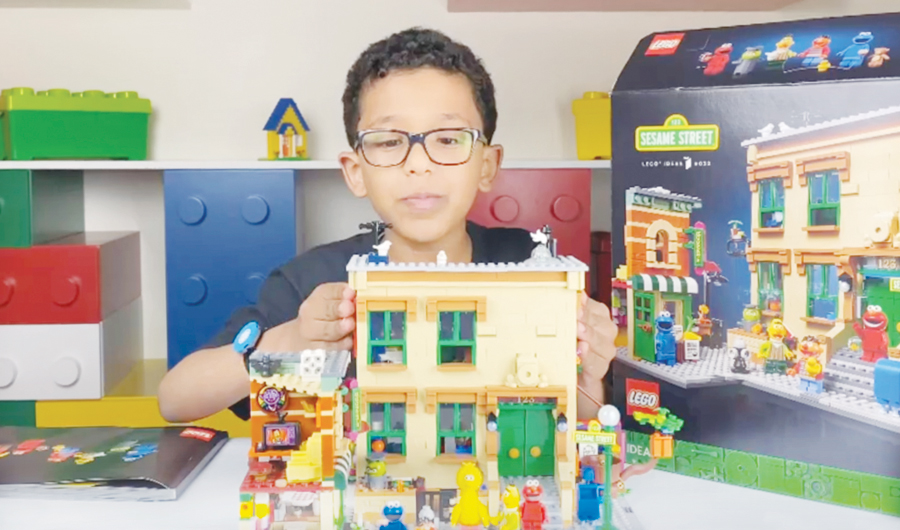
from Saudi Arabia https://ift.tt/36rhH4t
Saudi cybersecurity experts explain cookies, data and privacy infringement
RIYADH: The impact and necessity of the internet is more obvious than ever as it is the main source of communication, entertainment, information and shopping for many people. One of the most important uses of the internet is also one of the most simple — visiting websites.
Saudi Arabia has been a target for cybercriminals, and authorities have warned people to be careful when disclosing their personal information to unofficial parties. The matter has become a priority as the Kingdom is making significant investments in various sectors and is rapidly advancing. But one issue has been partially undermined by everyday internet users — cookie security.
Cookies themselves are harmless because they cannot hold codes so cannot contain viruses, but they can be a cause of malicious activities involving personal data. Many Saudis browsing the web do not understand or realize that the problem lies with using suspicious or sketchy browsers. They may seem legitimate but, in truth, they have security holes that can inadvertently leak personal information to malicious users and hackers.
Research company Our World in Data said that, globally, the number of internet users increased from 413 million in 2000 to more than 3.4 billion in 2016. The 1-billion threshold was crossed in 2005. It also said that, every day over the past five years, an average of 640,000 people went online for the first time. As for websites, tech marketing company Indivigital said there were more than 1.8 billion websites online in 2019 and that approximately 14,281 new websites were being created every day.
However, when visiting almost any new website for the first time, users can come across a little pop-up informing them that they need to accept cookies for the site to function properly. Sadly, nobody is being offered a delicious baked good. Instead, when accepting cookies, people are providing the site with a little packet of personal information.
Saudi cybersecurity experts Dina Al-Sharif and Abdullah Al-Gumaijan gave Arab News the lowdown on cookies — what they are, what they are used for, and how to ensure the safest browsing experience — to increase awareness about them.
HTTP cookies are essential to the modern internet, but they also pose a risk to privacy. Cookies help websites remember users, their logins, and more. But they can also provide hackers and cybercriminals with information that they can use against people.
HIGHLIGHT
Many Saudis browsing the web do not understand or realize that the problem lies with using suspicious or sketchy browsers. They may seem legitimate but, in truth, they have security holes that can inadvertently leak personal information to malicious users and hackers.
Cookies are text files containing information — like a username and password — that is saved about someone when they visit a website. Whenever someone visits a website, their computer sends this information automatically as a way of recognizing repeat visitors.
“The main goal of cookies is to identify returning users and improve the web browsing experience,” Al-Sharif said. “When you visit a website and accept their cookie, a text file is stored on the user hard disk which allows that site to store information and later retrieve it.”
Al-Gumaijan added: “For example, when you visit a site like Amazon and add items to the cart without logging in, if you visit Amazon again later you will notice those items are still in the cart. Amazon knows what those items are by using cookies.”
Since cookies are information provided by the same website being visited, Al-Gumaijan said that users were not really sharing sensitive information by visiting them. But most websites providing their content for free rely on adverts because the only means of income is to share user behavior with third-party entities, allowing them to engage in targeted advertising.
“If you visit a website selling used cars, and also search for specific car brands like BMW, you may start to notice BMW ads appearing on other sites, or when using social media,” he said.
According to Al-Sharif, cookies themselves did not necessarily pose a threat, but how they were used was still worth taking into consideration. “Before you accept cookies, websites are obligated to present their ‘cookie policy’ which you can read to learn more about how they are used.”
Cookies themselves are not harmful since the data in them does not change. They cannot infect computers with viruses or other malware. However, some cyberattacks can hijack cookies and enable access to a user’s browsing sessions.
Al-Gumaijan said that, for the most part, it was safe to accept cookies. But overly cautious users could try to opt for websites that allowed the option of rejecting them or using private browsing methods to avoid them.
“It’s important to keep in mind that general information about your activity on any website where you accept cookies will be shared with others. If this something that concerns you, you can use browsers that provide private modes such as Firefox and Google Chrome (incognito mode). This way, your activity will not be used next time you visit those websites.”
Removing cookies is also an option that can help users mitigate the risk of privacy breaches, but they can also reset someone’s browser tracking and personalization, making certain sites harder to navigate. Without cookies, users may have to re-enter their data on a site for each visit.

from Saudi Arabia https://ift.tt/3tdCbaI
Saudi Arabia supports promotion of investment in sustainable infrastructure
NEW YORK: Abdallah Al-Mouallimi, Saudi Arabia’s ambassador to the UN in New York, said the Kingdom has a long record of supporting public and private sectors partnerships to boost investment in sustainable infrastructure.
Al-Mouallimi was speaking at a virtual meeting to discuss the proposal of the president of the UN Economic and Social Council regarding investment in sustainable infrastructure.
Al-Mouallimi said that the Kingdom welcomes any initiative by the UN to promote private investment in infrastructure, including partnerships between the public and private sectors, and supporting infrastructure projects eligible for financing.
He noted that the structure of proposed tasks and ways of setting them should include the evaluation of the mechanisms to set the current projects while stressing their objectives, resources and progress, and learning lessons from past experiences while determining factors of success, reasons for weak performance, and flaws in the mechanisms to set the projects which were not previously resolved in a proper way.
Al-Mouallimi said: “In order to facilitate promoting investments in infrastructure and attract main investors, it is essential to elaborate a clear vision on how to benefit from the work undertaken by multilateral development banks in attracting investment. In addition, efforts should be organized to determine flaws and ways of improving the performance to strengthen the tendency towards endorsing sustainable investment in infrastructure.”
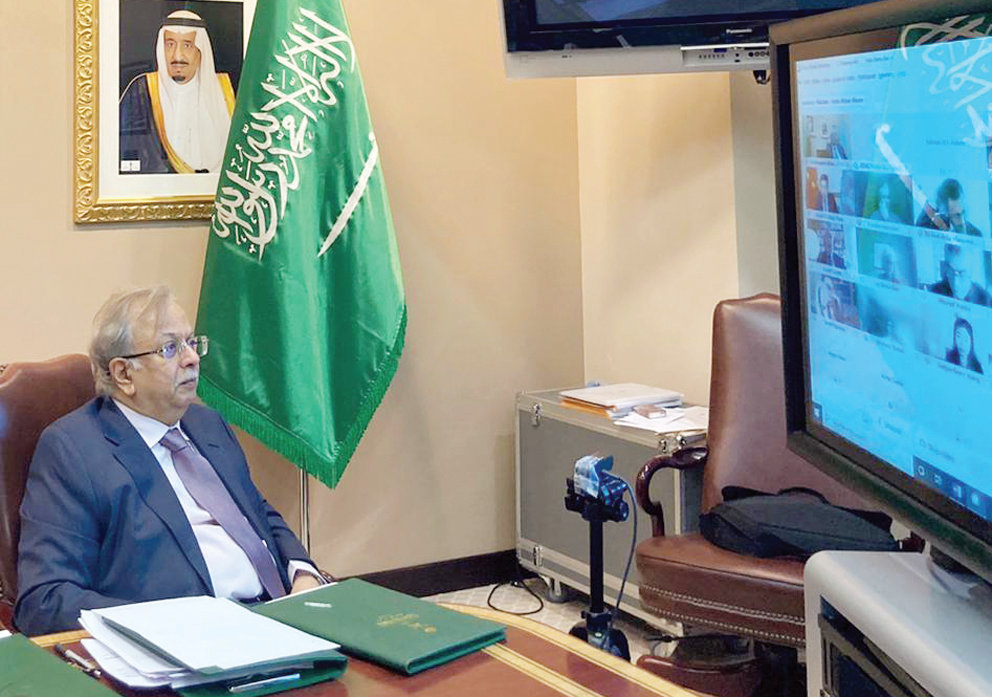
from Saudi Arabia https://ift.tt/3r0nkP0
Fawaz Farooqui, CEO of the Red Sea Cruise Co.
Fawaz Farooqui has been chief adviser to the minister at the Ministry of Culture since November 2018, heading up developments and projects related to cultural development and tourism. He was recently appointed CEO of the Red Sea Cruise Co.
He has been managing director of AlUla Development Co. since May 2020, and a part-time board member at Saudia airline and flyadeal since July 2020. He has been a board member of the Saudi Sports for All Federation since October 2018.
Farooqui previously worked at the National Transformation Program as director general from February 2017 to November 2018, and was CEO from March 2017 to November 2018.
He was a board member of the Quality of Life Program between October 2017 and September 2019.
Farooqui joined the government in October 2015 when he was adviser to the minister at the Ministry of Economy and Planning until November 2018.
At King Abdullah Economic City (KAEC), he worked at Emaar, the Economic City as senior manager for corporate business development between June 2014 and October 2015, and senior manager for special projects between September 2013 and June 2014.
Farooqui worked at Saudi Aramco for seven years, holding different positions from 2004, working as a network engineer and field team leader for the Satellite Support Group until 2011 where was manager of the Network Operations Center (NOC).
He gained a bachelor’s degree in political science, and computer engineering and computer science from the University of Southern California in 2004, and a master’s degree in electrical engineering from the same university in 2008.
He completed his MBA at Stanford University Graduate School of Business in 2013.
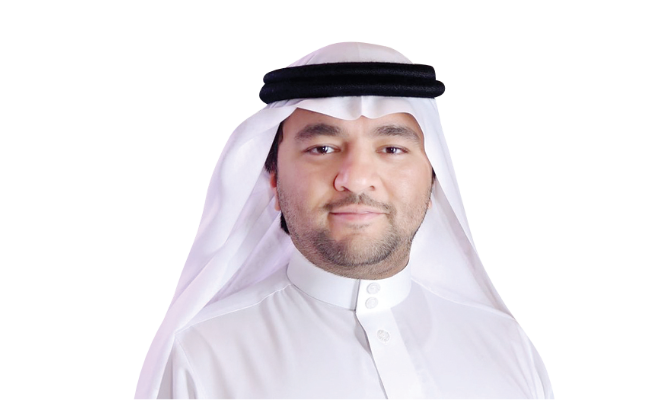
from Saudi Arabia https://ift.tt/2NHN986
"We Will Bring AstraZeneca Vaccine From India," Says Mexico President
from NDTV News - Special https://ift.tt/39u2AJu
Astrazeneca Vaccine "Quasi-Ineffective" For Over-65s: Emmanuel Macron
from NDTV News - Special https://ift.tt/2NNKHx4
"We Will Bring AstraZeneca Vaccine From India," Says Mexico President
from NDTV News - India-news https://ift.tt/39u2AJu
Punjab Chief Minister Cautions About Pakistan Amid Farm Protests
from NDTV News - India-news https://ift.tt/3r82UDE
Won't Be Joining "Active Politics": Ahmed Patel's Son Faisal
from NDTV News - India-news https://ift.tt/3ckt425
2 Terrorists Surrender With AK-47 Rifles After Encounter In J&K
from NDTV News - India-news https://ift.tt/3cocrTh
"Truth, Nonviolence": Farmers' Tribute To Mahatma Gandhi With 1-Day Fast
from NDTV News - India-news https://ift.tt/3r2T4TJ
Man Claims He Found Odisha Student Unconscious As Cops Probe Murder
from NDTV News - India-news https://ift.tt/2YvNgFS
US First Lady To Help Reunite Migrant Families Split By Trump Policies
from NDTV News - Special https://ift.tt/3ouyLgo
"Best Decision Was To Not Print It": P Chidambaram Slams Economic Survey
from NDTV News - India-news https://ift.tt/2YsoLcN
Quick Response Helped India Avoid 37 Lakh Covid Cases, Says K Subramanian
from NDTV News - Special https://ift.tt/2L2C1BZ
Quick Response Helped India Avoid 37 Lakh Covid Cases, Says K Subramanian
from NDTV News - India-news https://ift.tt/2L2C1BZ
PM Thanks Bahrain's Crown Prince For Partnership In Fight Against Covid
from NDTV News - Special https://ift.tt/3adYUuJ
PM Thanks Bahrain's Crown Prince For Partnership In Fight Against Covid
from NDTV News - India-news https://ift.tt/3adYUuJ
ThePlace: Al-Nawras Island in Saudi Arabia attracts thousands of visitors every year
Al-Nawras Island Saudi Arabia is home to many majestic beaches and enchanting islands along its Red Sea coast and Al-Nawras Island is considered one of the Kingdom’s gems.
Located in the governorate of Yanbu and highlighted among the Saudi Winter Season tourist destinations, the tranquil isle attracts thousands of visitors every year.
Most travelers are drawn to the island in search of relaxation and recreation. Visitors can enjoy Red Sea fishing trips, delicious meals in one of the numerous restaurants, or can simply camp under the stars.
Spread over 11 km, Al-Nawras Island has been developed by the Royal Commission for Jubail and Yanbu and boasts green spaces, fountains, and walking routes which are ideal for families. Paths are equipped with children’s games and also feature viewing areas offering panoramic photo opportunities.
Launched by the Saudi Tourism Authority, the slogan for this year’s season, which runs until the end of March, is “Winter Around You.” It has more than 17 locations throughout the Kingdom offering visitors in excess of 300 packages provided by 200 tour operators.
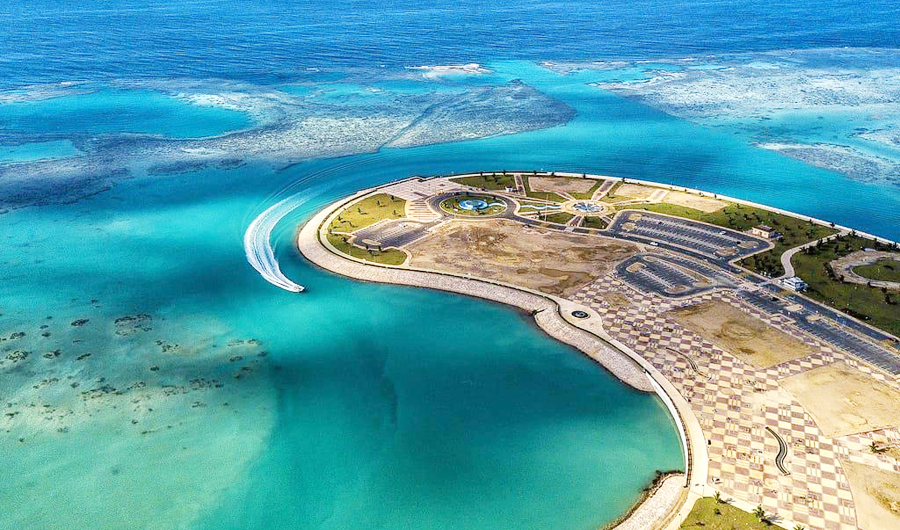
from Saudi Arabia https://ift.tt/3t8voz0
Rise in Saudi virus cases prompts minister’s appeal
JEDDAH: An uptick in the number of daily coronavirus (COVID-19) cases has Saudi officials calling on the public to remain steadfast in their efforts to combat the deadly disease.
Dr. Tawfiq Al-Rabiah, the Saudi minister of health, spoke out on Thursday after 253 new cases were reported in the Kingdom.
“We have faced a great challenge together,” Al-Rabiah posted on Twitter. “We have made strides and it had a place in our memory. Please don’t allow this challenge to come again.”
The minister’s message was a strong reminder of warnings he made at the beginning of the pandemic.
“We are living in a major challenge as COVID-19 is now spreading around the world rapidly,” Al-Rabiah said in a video clip on March 15, 2020. “Our leadership has taken a set of precautions to protect you, and the challenge is great and your cooperation is important. So, from the heart, I ask you for your cooperation.”
Meanwhile, the Health Ministry warned of seven possible side effects from the second dose of the COVID-19 vaccine and how to deal with the symptoms.
“In general, the side effects that may appear include tiredness, headache, sore throat, muscle pain, malaise, muscle aches, fever and chills,” the ministry said in response to a question from a vaccinated patient.
The Saudi Center for Disease Prevention and Control suggested that people dealing with possible side effects could place a cold compress on the injection site to relieve pain, redness and swelling. Paracetamol can be used to relieve headache, muscle pain, fever and tiredness.
Saudi Arabia reported 267 new COVID-19 cases on Friday, bringing the total number of people who have contracted the disease to 367,543. There are 2,169 active cases, while 355 are in critical condition.
According to the Health Ministry, Riyadh recorded 89 new cases, followed by the Eastern Province (70), Makkah (49) and Madinah (six).
Two more COVID-19-related deaths were reported in the past 24 hours, bringing the death toll to 6,368.
FASTFACTS
367,543 Total cases
359,006 Recoveries
6,368 Deaths
2,169 Active cases
355 Critical condition
In addition, 253 patients recovered from the disease, raising the total to 359,006 recoveries nationwide. Saudi Arabia has conducted 12.2 million PCR tests so far, with 48,445 in the past 24 hours.
Meanwhile, Saudi Arabia is to extend its travel restriction period and shift the date for reopening the Kingdom’s borders from March 31 to May 17 due to delays in delivery of coronavirus disease (COVID-19) vaccines, authorities said on Friday.
The Ministry of Interior announcement came just weeks after the Saudi government penciled in the end of March to reopen the country’s land, sea, and air entry points for travel following a drop in the number of COVID-19 cases.
On Jan. 8, it had also set March 31 as the date to lift the suspension of international flights.
The latest decision was based on a statement by the Saudi health minister revealing that COVID-19 vaccine manufacturers had failed to meet deadlines for the delivery of contracted batches. A second wave of the virus spreading rapidly around the world, had also influenced the move, the ministry added.
Before lifting travel restrictions for Saudis and reopening borders, the Kingdom was aiming to inoculate most of the population against the virus while in the process keeping infection rates to a minimum.
Saudi Arabia suspended flights in December after the emergence of a new and more infectious variant of COVID-19.
Physician at Riyadh’s King Abdullah Specialist Hospital and Research Center, Dr. Shaikh Abdullah, told Arab News that extending the country’s travel ban was a “wise” step by the government.
“Saudi Arabia has done an excellent job at containing the spread of the virus and has earned itself a place on the list of countries having the lowest number of cases as well as death rate.
“Being a frontline physician in the fight against this havoc-wreaking virus, I see the immunization of the masses as the only way to beat this virus, then lifting the ban and reopening borders,” he said.
He added that global demand was slowing down vaccine rollout. “That is why extended restrictions on travel are going to be a reality for the next couple of months, and our best option for keeping the number of deaths and cases at a low level while avoiding a second wave of the virus.”
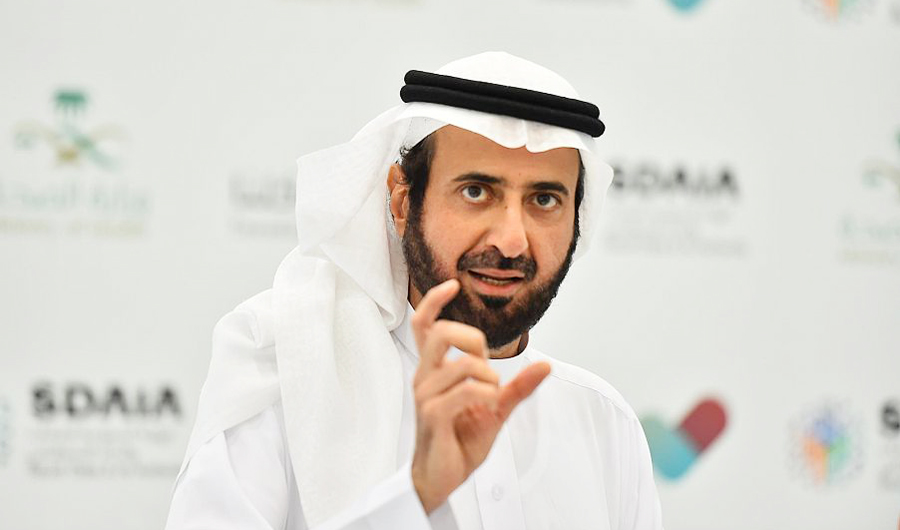
from Saudi Arabia https://ift.tt/3psRzhc
Saudi Culture Ministry launches project to document stone installations
MAKKAH: Saudi Minister of Culture Prince Badr bin Abdullah bin Farhan has announced the launch of a scientific project to document and study stone installations in the Kingdom.
Prince Badr, who is also chairman of the board of directors of the Heritage Commission, said that the project was in cooperation with national and international institutions and centers. It is also within the Heritage Commission’s survey and excavation program plan.
The Heritage Commission hopes that the project will be one of the most important model research projects in archaeology in the coming years. It will establish a long-term strategy prepared and implemented by qualified national personnel to add valuable information to the Kingdom’s cultural history.
It comes within the framework of unifying the research efforts of stone installations in the Kingdom, documenting and recording them in the archaeological database and studying them according to a scientific methodology to identify their functional purposes, as well as their time and spatial ranges.
This scientific project will see the participation of researchers and specialized university students.
The project is also expected to document about 500,000 sites to be examined, as the stone installations in the Kingdom have not undergone analytical documentation studies during previous archaeological excavation trips.

The stone installations are architectural evidence for stone buildings of various shapes, functions and time periods. Some of their types across the Kingdom include cemeteries, animal traps with ring circles and stone circles, rectangular stone gates, extended walls and erect columns.
Professor of history and archaeology at the King Saud University, Dr. Abdulaziz Al-Ghazi, said that this was an important project if implemented in a way that includes all published studies and research, as well as what has not been published about the installations’ different types and geography.
“This project needs financial and human power in order to be successful and attract specialized experts in the region,” he told Arab News. “I hope that this draws competent young Saudis who are capable of performing this job. A lot of good information will result from this work.”
Professor of restoration and archaeology, Dr. Abdul Nasser Al-Zahrani, said that the Kingdom was renowned for three archaeological items: Inscriptions, cemeteries and stone installations.
HIGHLIGHTS
• The Heritage Commission hopes that the project will be one of the most important model research projects in archaeology in the coming years. It will establish a long-term strategy prepared and implemented by qualified national personnel to add valuable information to the Kingdom’s cultural history.
• The stone installations are architectural evidence for stone buildings of various shapes, functions and time periods. Some of their types across the Kingdom include cemeteries, animal traps with ring circles and stone circles, rectangular stone gates, extended walls and erect columns.
“The Kingdom is a large mine of stone installations in Khaybar and AlUla, as well as the country’s center, west, south, north and east, all of which teem with tombstones and relics that remain unexcavated,” he told Arab News.
He said that as stone installations had not been studied much to date, this important news would allow the establishment of academic tracks to examine these monuments.
Professor of ancient history, Dr. Salma Hawsawi, said that studying the Kingdom’s history and archaeology was part of national history and witness to the country’s deep-rooted history.
“It is also proof of the Saudis’ awareness about what was left by their ancestors, relics that they are happy to safeguard and showcase to future generations who look forward to knowing the Saudi civilizational heritage, human history and relics,” she told Arab News.
She said that cemeteries have been found in the Kingdom dating back to the Middle Stone Age. “At first, they were about simple practices such as a hole covered with stone slabs. And in later eras they became huge structures, such as the stone cemeteries in AlUla, Tayma, Dumat Al-Jandal, Tabuk and other areas.”

This scientific project will see the participation of researchers and specialized university students.
The archaeological site of Al-Rajajeel (meaning “the Men”) in Al-Jouf is one of the stone pillars that dates back to the fourth century B.C, and is a great stone circle, thought to provide protection from the wind or used as a cemetery, she said.
“Huge stone columns in separate groups were also found in the site, and stone circles — simplified in design, complex or the ones that are part of a village or residence — are spread over the region, such as Al-Qasir and Riyadh,” Hawsawi said.
She said that the aim of the columns differed based on the site where they were found; they were on trade routes as a sign for convoys, and in specific areas as a sign for worship or to identify a region or a cemetery.
According to the professor, traditional architecture in ancient Arabia was predominated by thick walls and small windows to conform with the climate.
“They are usually built with limestone or any available stone such as the houses in Qaryat Al-Faw, which are very similar to the houses in Riyadh later on, near the walls that surround cities, fortresses and bastions such as the Tabuk Castle in the northwest of the country, that dates back to 3,500 B.C, and many other sites,” she said.
Cities that contain many stone structures include Historic Diriyah, Al-Mubarraz in Hofuf, the Al-Qalaa neighborhood in Qatif, Historic Sadous, Historic Jeddah, the Al-Aghwat neighborhood in Madinah, the Hira Cave and the Cave of Thowr in Makkah.
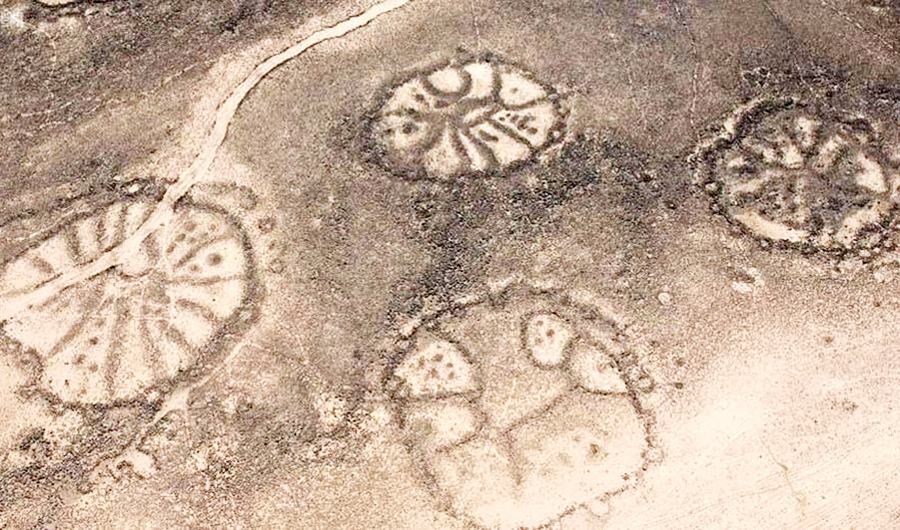
from Saudi Arabia https://ift.tt/2YrANmH




